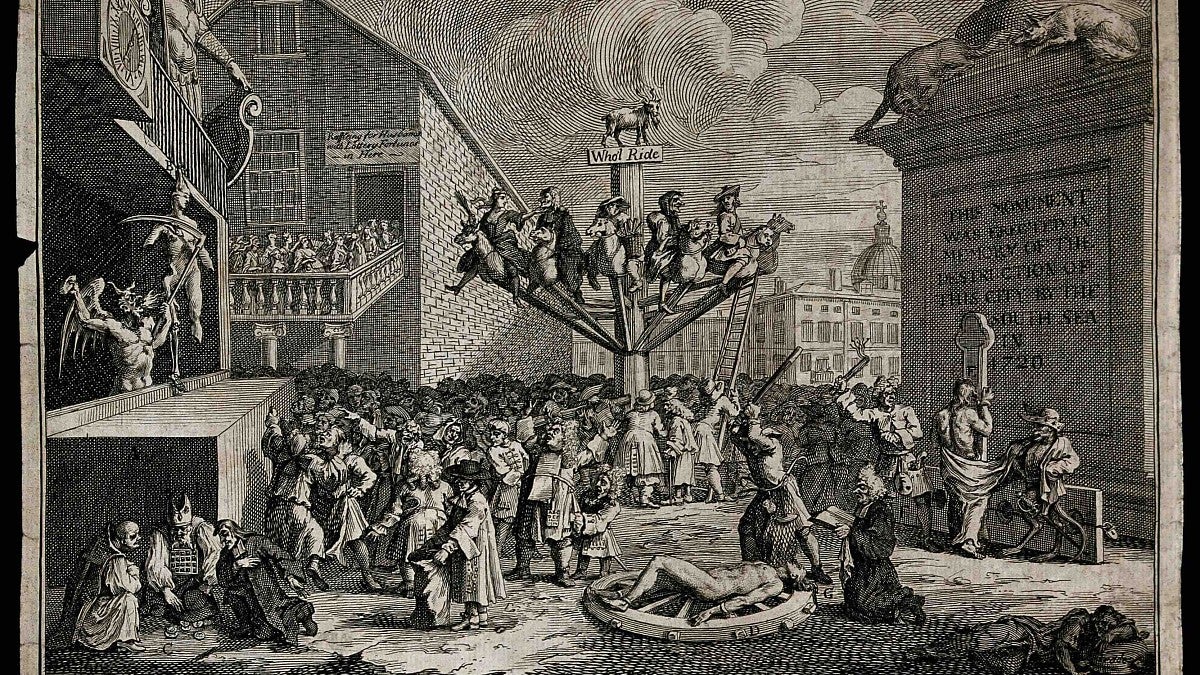
March 1, 2024-10:00am
In the past few decades, financial crises have rocked the world, from the dot-com bubble burst in the early 2000s to the COVID-19 pandemic recession. But when did the first one occur?
On March 6, Daniel Menning, an associate professor at the University of Tübingen in Germany, will discuss in a lecture for undergraduate students about the first-ever stock market crash in history, which happened in 1720.
Organized by the Department of History in the College of Arts and Sciences, the event is intended to foster community among undergraduates. The lecture is from 6 to 8 pm Wednesday, March 6, in McKenzie 375.
Menning’s lecture, titled Bankrupted by “Bubbles: Economic Fallout and Legal Challenges of Hyperspeculation in 1720,”focuses on how people make decisions during financial crises.
“My presentation will study this question, looking at the first-ever stock market crash in 1720—the South Sea Bubble,” Menning says. His presentation will analyze how people navigated a world shaped by “economic difficulties, worries about an outbreak of the plague and rules not adapted to the size of the problem,” he adds.
The South Sea Bubble refers to the stock market crash of the South Sea Company. The company held a monopoly in the slave trade to the Americas in return for loaning the government of Great Britain money to pay off debt accumulated from ongoing wars .
The South Sea Company’s stock rose greatly but peaked in 1720. When shares of the company halved over months, many Europeans lost their fortunes, rippling throughout the financial system. Among the notable investors is Sir Isaac Newton, who lost as much as $50 million in today’s money, according to Historic UK.
Vera Keller, professor and history department head at UO, has known Menning through the Oregon-Baden Württtemberg Exchange Program . With Mening’s upcoming visit to Eugene, Keller asked if he would give a lecture geared toward an undergraduate audience. He happily agreed.
In his recent classes, students have described his presentations as “very competent, sympathetic and easily understandable,” “entertaining” and organized. And Meaning hopes his lecture at UO will have the same impact.
Keller is eager to see the impact of this first undergraduate history lecture.
“It is also just a wonderful thing to be able to share with other students the experience of being at an inspiring and interesting academic talk where there is no homework, no grading, no pressure,” Keller said.
She hopes students gain more than just new knowledge from this lecture, but build community with each other.
“When I was in college, I made some of my most important college friendships from people I met at events like this,” she said.
—By Alyson Johnston, College of Arts and Sciences
